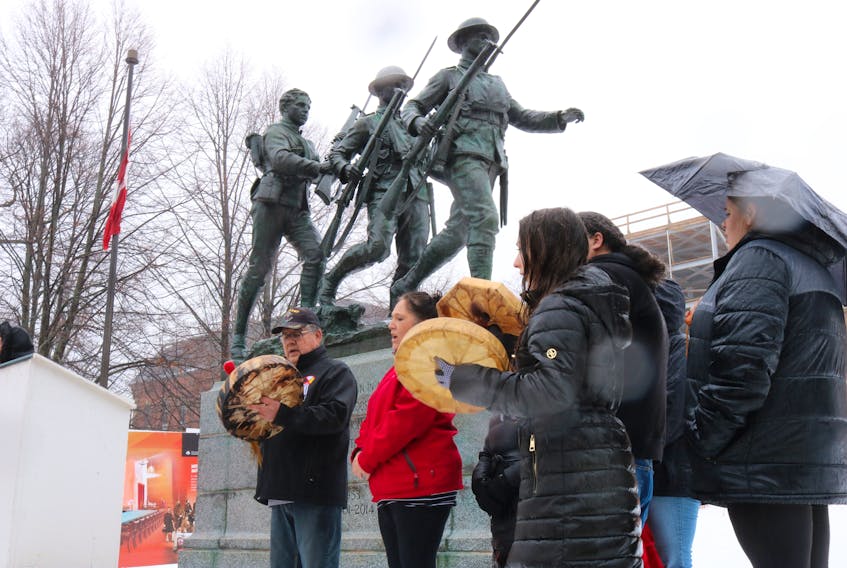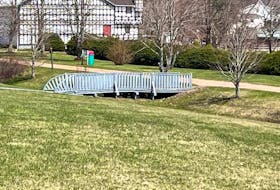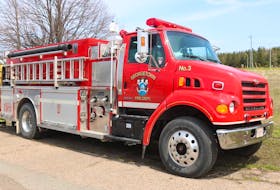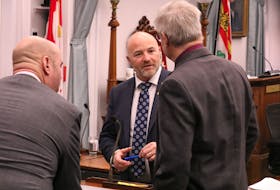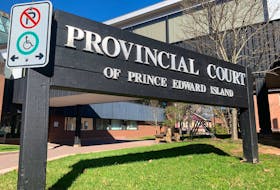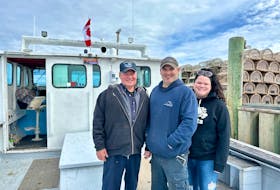CHARLOTTETOWN, P.E.I. - Close to 60 people braved the rain on Thursday for a noontime rally in Charlottetown to show their support for members of the Wet’suwet’en Nation in Northern B.C.
The rally, organized by the Native Council of P.E.I. (NCPEI), drew together native and non-native supporters of the Wet’suwet’en. Held at the Province House cenotaph, the rally drew honks of support from several passing motorists.
“We're here today because we're shocked at what happened in British Columbia, when the police disregarded the rights of the territorial elders, and the people, and forcibly removed them from their territory,” said local advocate Mary Boyd.

The Wet’suwet’en First Nation was thrust into the national spotlight after RCMP arrested 14 people on Jan. 7 at a blockade established at a remote service road. Members of the nation, as well as its hereditary chiefs, had set up the blockade to oppose the development of the Coastal GasLink pipeline, which would carry fracked natural gas through Wet’suwet’en traditional territory. Police say they were enforcing a temporary court injunction that required the removal of the blockade. Several journalists were refused access to the site by the RCMP.
The arrests and dismantlement of the blockade drew widespread condemnation from First Nations groups, and sparked protests throughout the country. A second camp remains at the Unist’ot’en checkpoint, but Coastal GasLink workers have been allowed access to the territory.
"The unresolved land claim is at the heart of the Wet'suwet'en pipeline opposition," said Darren Creamer, of the Native Council of P.E.I.
Creamer said permission of hereditary chiefs is required for pipeline projects to pass through the territory.
Despite the opposition of the hereditary chiefs of the Wet’suwet’en Nation, the elected Wet’suwet’en band councillors support the Coastal GasLink pipeline. Most other Nations in Northern B.C. also signed project agreements in support of the project.
Despite the support from other nations, NCPEI president Lisa Cooper said hereditary chiefs of the Wet’suwet’en are fully justified in their actions to stop the pipeline. She pointed to environmental risks associated with the project.
"If you're looking at the environment, then don't go through. Not every project has to go through," Cooper said.
"You need to look at economic development. If that's the only possible job that's available, there needs to be more investment in economic development in that community."

